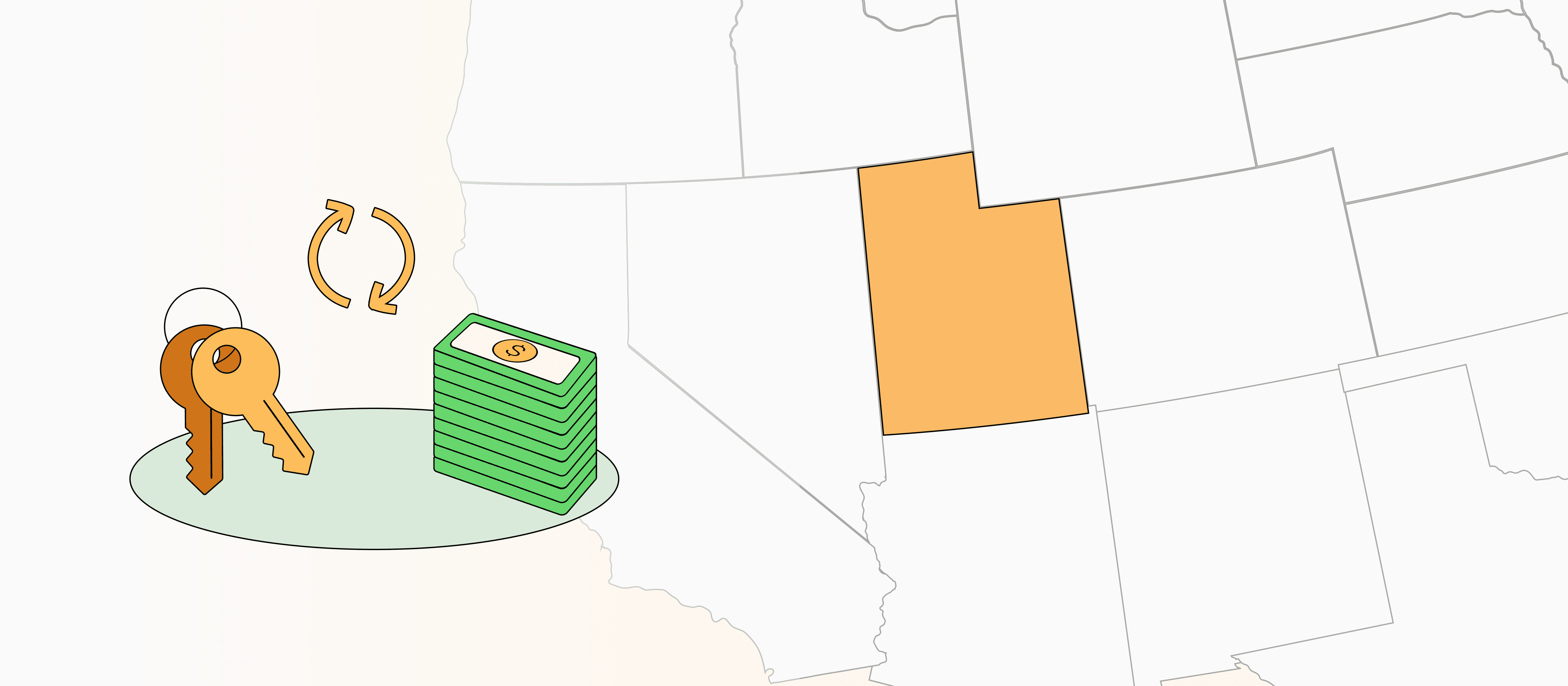| Quick Facts | Answer |
| Maximum / Limit | No Limit |
| Receipt Requirement | None |
| Inventory Requirement | Yes (or Tenant Inspection) |
| Interest Requirement | None |
To learn about laws on security deposit returns in Utah, click here.
Some cities and counties may have regulations which are more restrictive than those presented here. Always check local laws.
Maximum Security Deposit Allowed in Utah
There is no limit on how much a landlord can collect for a security deposit in Utah. While other states impose a maximum security deposit limit, such as one month’s rent, Utah does not.
Can Landlords Charge an Additional Pet Deposit in Utah?
In Utah, landlords can charge a pet deposit, except for service dogs and emotional support animals.
How Much Rent Can a Landlord Collect Upfront in Utah?
There is no limit on the amount of rent that can be collected upfront in Utah. Many states have a limit on the amount of rent that can be collected at once, but Utah does not. However, the landlord cannot collect a security deposit without providing the tenant a full explanation of how to recover any money paid for the rental unit that does not match the legal disclosure requirements.
Security Deposit Collections in Utah
When collecting a security deposit in Utah, landlords must complete one of three options: provide tenants with an inventory of damages, provide tenants with a blank checklist to complete and return, or give tenants the option to conduct an inspection of the rental unit.
Do Landlords Have To Provide a Receipt for the Security Deposit in Utah?
Although some states like Washington require a receipt, landlords are not required to provide a receipt for the security deposit in Utah.
What Obligations Do Landlords Have To Establish the Condition at Move-in in Utah?
Before the start of a lease term, landlords in Utah must do one of the following:
- Provide tenants with a written inventory of the condition of the rental unit except for normal wear and tear
- Provide tenants with a blank inventory checklist and give them a reasonable time to return the completed form
- Allow the tenant to conduct a walk-through inspection
This requirement exists regardless of whether or not the landlord collects a security deposit. However, if damages are discovered through this process, the cost to repair them cannot be deducted from the new tenant’s security deposit.
Security Deposit Holdings in Utah
Utah law does not require landlords to hold security deposits separate from other funds. Some other states mandate how and where security deposits are held, but Utah does not.
Are Tenants Entitled to Interest on Their Security Deposit in Utah?
Utah law does not require landlords to provide interest on held security deposits.
How Are Security Deposits Accounted for in Utah?
Security deposits are not considered taxable income when they are collected.
What Happens to a Security Deposit When the Property is Sold in Utah?
When a property is sold in Utah, the seller must transfer the security deposit to the new owner, who must handle it according to the same rules.
Sources
- 1 Utah Code § 57-22-4(3)
-
(a) Before an owner accepts an application fee or any other payment from a prospective renter, the owner shall disclose in writing to the prospective renter:
(i) a good faith estimate of:
(A) the rent amount; and
(B) the amount of each fixed, non-rent expense that is part of the rental agreement;
(ii) the type of each use-based, non-rent expense that is part of the rental agreement;
(iii) the day on which the residential rental unit is scheduled to be available;
(iv) the criteria that the owner will consider in determining the prospective renter’s eligibility as a renter in the residential rental unit, including criteria related to the prospective renter’s criminal history, credit, income, employment, or rental history; and
(v) the requirements and process for the prospective renter to recover money the prospective renter pays in relation to the residential rental unit, as described in Subsection (4).
(b) An owner may satisfy the written disclosure requirement described in Subsection (3)(a)(i) through a rental application, deposit agreement, or written summary.
Source Link - 2 Utah Code § 57-22-4(6)
-
Before an owner and a prospective renter enter into a rental agreement, the owner shall:
(a) provide the prospective renter a written inventory of the condition of the residential rental unit, excluding ordinary wear and tear;
(b) furnish the renter a form to document the condition of the residential rental unit and then allow the resident a reasonable time after the renter’s occupancy of the residential rental unit to complete and return the form; or
(c) provide the prospective renter an opportunity to conduct a walkthrough inspection of the residential rental unit.
Source Link - 3 Utah Code § 57-17-4
-
The holder of the owner’s or designated agent’s interest in the premises at the time of termination of the tenancy shall be bound by the provisions of this act.
Source Link

